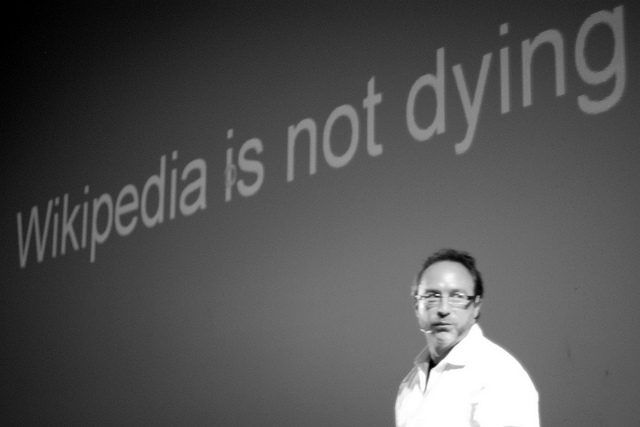
Wikipedia editors have disabled hundreds of paid Wikipedia editing accounts in recent weeks as part of a campaign against so-called "sockpuppetry."
The efforts were described in a statement published this morning by the Wikimedia Foundation, in which director Sue Gardner acknowledged that "as many as several hundred" accounts belong to editors who are being paid to promote products or services on the site. That's a violation of Wikipedia policies and terms of use, Gardner noted. "As a result, Wikipedians aiming to protect the projects against non-neutral editing have blocked or banned more than 250 user accounts," continued Gardner. "The Wikimedia Foundation takes this issue seriously and has been following it closely."
The statement follows reports earlier this month in the The Daily Dot and last week in Vice. The stories describe the increasing amounts of money flowing toward paid editing of English-language Wikipedia pages. According to both articles, Wikipedia editors attribute the growth in paid edits to a company called Wiki-PR.
The Daily Dot interviewed four Wiki-PR clients who said they paid between $500 and $1,000 to have articles written and then $50 a month for ongoing "page management" services. For its article, Vice spoke to a college dean who paid $1,500 for a profile to be written—and then was asked to pay another $800 for 30 days of "media relations efforts" when the page kept getting deleted.
Unfortunately for Wikipedia editors, Wiki-PR recently had success in attracting larger corporate clients. In a tweet captured by Wikipedians in September, Wiki-PR's head of sales boasted of snagging Viacom and Priceline as clients.
"I don't give two shits if they write articles about websites that sell erectile dysfunction pills," said longtime Wikipedia editor Kevin Gorman in an interview with Vice. "They're immediately obvious to the casual user as lame spam. I'm much more worried about what happens when an unethical outfit manages to start getting major clients and start controlling articles that our average reader assumes are not written by corporate flaks."
reader comments
104